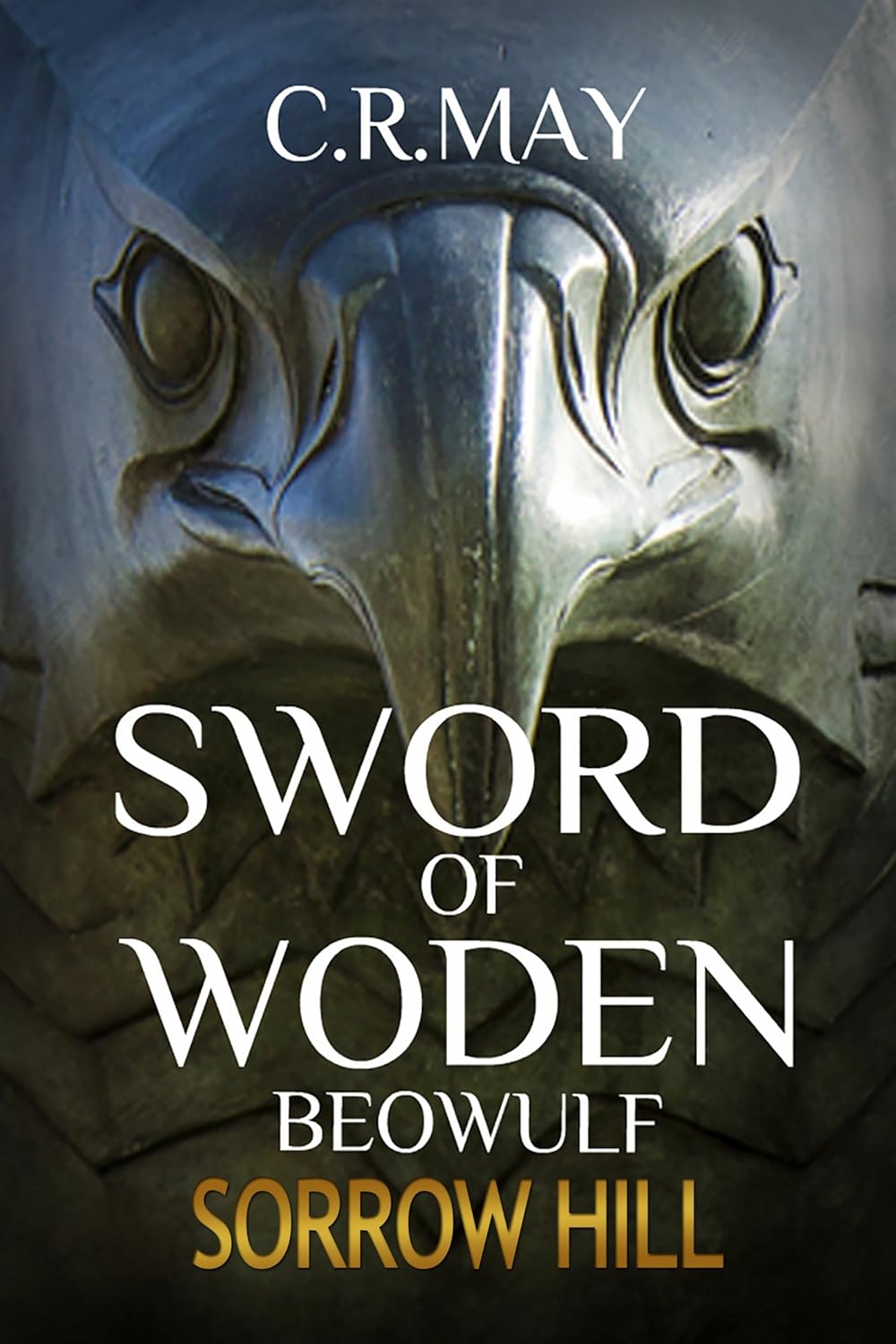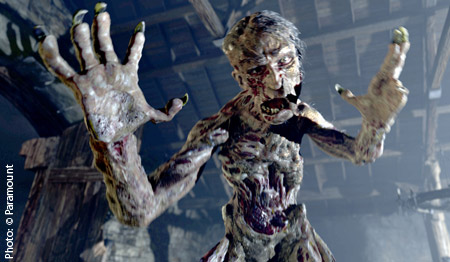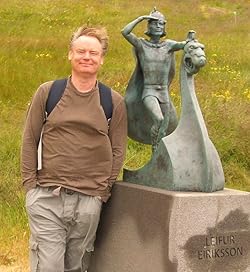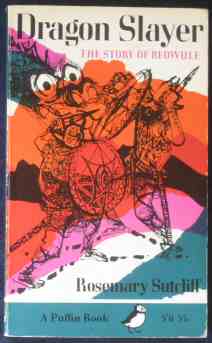M is for Memories by Joan Fallon
Review by Anna Belfrage
When Nancy Miller is talked into writing her memoirs, she doesn’t quite realise what she has taken on. What she had hoped would be a controlled process, ensuring certain doors remained firmly closed, quickly spirals into a revisiting of a past she would prefer to forget. That’s the thing with memories – they spring unbid into your head at the most inopportune times…
For most of her life, Nancy has been a successful artist, her water colours selling for impressive amounts. Since the 1960s she’s been living in Marbella, and when the story opens she is pushing eighty, a somewhat forgetful old biddy who suspects her son is planning to lock her away in a home for the elderly.
Nancy is not an easy person to like – nor does she go very much out of her way to be liked, downright rude as she is to the hired help, to her son – even to Ana, the young woman hired to help her with her memoirs. As the novel progresses, however, Nancy grows on you. That tough exterior hides a vulnerable interior, a woman forever shaped by her experiences in her twenties.
It is difficult to become old, to become invisible. Where once Nancy drew the eye whenever she ventured outside, now she considers whether she should buy a beautiful dog to attract interest and comments – but due to age and infirmity, a dog is not an option. With each day, Nancy retires further and further into a self-imposed exile, her contacts with the outer world reduced to her son’s visits and the hours spent with Ana.
Nancy views Ana with a combination of affection and distrust. The young woman is bright and courteous, she never talks down to Nancy, never seems to notice when Nancy’s lipstick is awry or her clothes stained with spilled wine. Ana, it seems, accepts Nancy as she is. Except, of course, for her enervating tendency to return, over and over, to the subject of Nancy’s husband, Nick.
Nick, according to Nancy, is dead. Very, very dead. Nick, according to Ana, is not necessarily dead, as there is no death certificate. As far as Ana can make out, Nick and Nancy were living together in England until 1964, when suddenly Nancy showed up in Marbella with her three-year-old son in tow. All very mysterious – and the more evasive Nancy becomes, the more determined Ana becomes to find out the truth.
Ms. Fallon does an excellent job of weaving the present day narrative with retrospective passages from Nancy’s past. As a young, gifted female artist she falls in love with Nick, a young handsome man with aspirations to be an artist but without the talent required. What begins as a love affair, a mutual attraction, morphs into a controlling relationship in which Nick isolates Nancy from her family and friends, restricting her social interaction to him. Her success just serves to underline his artistic failures, and with each passing day Nancy’s life shrinks further and further, her every waking moment dedicated to ensuring Nick doesn’t get angry. Because if he does, well, then there’s hell to pay – and the one who pays is Nancy.
As a woman, it is impossible to not be affected by Nancy’s story. In a language devoid of hyperbole or sentimentalism, Ms. Fallon describes Nancy’s transformation from an independent woman with dreams to a battered victim. Even worse, Nancy is fully aware of her transformation, hates what Nick has reduced her to, but she has nowhere to go; her single attempt to flee her abuser backfiring badly.
In the present, Nancy’s relationship with her son Martin is a complicated thing, with him trying to protect and care for a woman who views every kindness as an attempt to steal away her independence. But she loves her son – adores him, even – and the sentiment is reciprocated, despite constant squabbles and misunderstandings. Yet again, I must congratulate Ms. Fallon on her descriptive writing – by using both Nancy’s and Martin’s points of view, she allows the reader some insight into how they think and feel.
The tour de force, however, lies in how Ms. Fallon presents Nancy. Intelligent and observant, this old woman has moments of absolute clarity – but just as many of deranged ramblings. Nancy forgets things, falls asleep at all moments, refuses the food the hired help prepares, vacillates between genuine concern for her pregnant daughter-in-law and huge irritation with the woman for monopolising Martin’s time. She is irritable and mean, suspicious of everyone, dryly amusing and more than aware that her life is fast approaching its end. Thing is, Nancy considers it her right to live her life as she pleases right up to the bitter end – she has had to fight hard for her independence, and has no intention of relinquishing it to anyone, not again, not after Nick.
As Ana progresses with her work, she realises a key to the events of the past lies in Nancy’s painting. From bright depictions in the early stages of her career, they become dark and brooding around the time of Martin’s birth, but some years later on they become lighter in tone, an endless sequence of paintings that has one thing in common – water. Herein, Ana suspects, lies Nancy’s secret. But Nancy won’t tell, and Martin doesn’t want to know, so Ana concludes that some secrets should be left undisturbed.
Ms. Fallon is an excellent writer. Her dialogue rings true throughout, her characters grow into tangible beings, and her descriptions bring the various setting to life, from the utterly depressing flat Nancy and Nick share in their youth, to the view outside Nancy’s window. Ana’s efforts to unravel Nancy’s secrets create a building tension throughout the book, a bit like a musical symphony with a final crescendo. Most of all, Ms. Fallon gives us a thought-provoking and unsentimental description of a woman struggling with the onset of old age while still fully convinced she is still the same person she was when she took that momentous decision back in 1964.
There were some minor irritants in the book, such as Nancy’s grandsons having brown eyes and then suddenly they were blue, or that the eldest boy became the younger. Beauty spots, no more, but unnecessary blemishes in a book as excellent as this. Ms. Fallon has written a little gem, combining multiple narrative threads into a book it was quite impossible to put down. Impresionante, Señora Fallon – más que impresionante!
About the author:
Joan Fallon began her career as a writer after moving to Spain at the start of the new millennium. Her first book was a social history inspired by the women in her new home, but since then Ms. Fallon has gone on to write various novels, many of them with a connection to Spain.
You can find out more about Joan and her books by going to her website. M is for Memories is available at Amazon and Amazon UK.
Anna Belfrage is the author of eight published books, all part of The Graham Saga. Set in the 17th century, the books tell the story of Matthew Graham and his time-travelling wife, Alex Lind. Anna can be found on Amazon, Twitter, Facebook and at her website.
Note: This post has been updated to include the date of the drawing.
Review by Anna Belfrage
See below to learn how you can win a FREE COPY of
M is for Memories
Drawing June 6
M is for Memories
Drawing June 6
When Nancy Miller is talked into writing her memoirs, she doesn’t quite realise what she has taken on. What she had hoped would be a controlled process, ensuring certain doors remained firmly closed, quickly spirals into a revisiting of a past she would prefer to forget. That’s the thing with memories – they spring unbid into your head at the most inopportune times…
For most of her life, Nancy has been a successful artist, her water colours selling for impressive amounts. Since the 1960s she’s been living in Marbella, and when the story opens she is pushing eighty, a somewhat forgetful old biddy who suspects her son is planning to lock her away in a home for the elderly.
Nancy is not an easy person to like – nor does she go very much out of her way to be liked, downright rude as she is to the hired help, to her son – even to Ana, the young woman hired to help her with her memoirs. As the novel progresses, however, Nancy grows on you. That tough exterior hides a vulnerable interior, a woman forever shaped by her experiences in her twenties.
It is difficult to become old, to become invisible. Where once Nancy drew the eye whenever she ventured outside, now she considers whether she should buy a beautiful dog to attract interest and comments – but due to age and infirmity, a dog is not an option. With each day, Nancy retires further and further into a self-imposed exile, her contacts with the outer world reduced to her son’s visits and the hours spent with Ana.
Nancy views Ana with a combination of affection and distrust. The young woman is bright and courteous, she never talks down to Nancy, never seems to notice when Nancy’s lipstick is awry or her clothes stained with spilled wine. Ana, it seems, accepts Nancy as she is. Except, of course, for her enervating tendency to return, over and over, to the subject of Nancy’s husband, Nick.
Nick, according to Nancy, is dead. Very, very dead. Nick, according to Ana, is not necessarily dead, as there is no death certificate. As far as Ana can make out, Nick and Nancy were living together in England until 1964, when suddenly Nancy showed up in Marbella with her three-year-old son in tow. All very mysterious – and the more evasive Nancy becomes, the more determined Ana becomes to find out the truth.
Ms. Fallon does an excellent job of weaving the present day narrative with retrospective passages from Nancy’s past. As a young, gifted female artist she falls in love with Nick, a young handsome man with aspirations to be an artist but without the talent required. What begins as a love affair, a mutual attraction, morphs into a controlling relationship in which Nick isolates Nancy from her family and friends, restricting her social interaction to him. Her success just serves to underline his artistic failures, and with each passing day Nancy’s life shrinks further and further, her every waking moment dedicated to ensuring Nick doesn’t get angry. Because if he does, well, then there’s hell to pay – and the one who pays is Nancy.
As a woman, it is impossible to not be affected by Nancy’s story. In a language devoid of hyperbole or sentimentalism, Ms. Fallon describes Nancy’s transformation from an independent woman with dreams to a battered victim. Even worse, Nancy is fully aware of her transformation, hates what Nick has reduced her to, but she has nowhere to go; her single attempt to flee her abuser backfiring badly.
In the present, Nancy’s relationship with her son Martin is a complicated thing, with him trying to protect and care for a woman who views every kindness as an attempt to steal away her independence. But she loves her son – adores him, even – and the sentiment is reciprocated, despite constant squabbles and misunderstandings. Yet again, I must congratulate Ms. Fallon on her descriptive writing – by using both Nancy’s and Martin’s points of view, she allows the reader some insight into how they think and feel.
The tour de force, however, lies in how Ms. Fallon presents Nancy. Intelligent and observant, this old woman has moments of absolute clarity – but just as many of deranged ramblings. Nancy forgets things, falls asleep at all moments, refuses the food the hired help prepares, vacillates between genuine concern for her pregnant daughter-in-law and huge irritation with the woman for monopolising Martin’s time. She is irritable and mean, suspicious of everyone, dryly amusing and more than aware that her life is fast approaching its end. Thing is, Nancy considers it her right to live her life as she pleases right up to the bitter end – she has had to fight hard for her independence, and has no intention of relinquishing it to anyone, not again, not after Nick.
As Ana progresses with her work, she realises a key to the events of the past lies in Nancy’s painting. From bright depictions in the early stages of her career, they become dark and brooding around the time of Martin’s birth, but some years later on they become lighter in tone, an endless sequence of paintings that has one thing in common – water. Herein, Ana suspects, lies Nancy’s secret. But Nancy won’t tell, and Martin doesn’t want to know, so Ana concludes that some secrets should be left undisturbed.
Ms. Fallon is an excellent writer. Her dialogue rings true throughout, her characters grow into tangible beings, and her descriptions bring the various setting to life, from the utterly depressing flat Nancy and Nick share in their youth, to the view outside Nancy’s window. Ana’s efforts to unravel Nancy’s secrets create a building tension throughout the book, a bit like a musical symphony with a final crescendo. Most of all, Ms. Fallon gives us a thought-provoking and unsentimental description of a woman struggling with the onset of old age while still fully convinced she is still the same person she was when she took that momentous decision back in 1964.
There were some minor irritants in the book, such as Nancy’s grandsons having brown eyes and then suddenly they were blue, or that the eldest boy became the younger. Beauty spots, no more, but unnecessary blemishes in a book as excellent as this. Ms. Fallon has written a little gem, combining multiple narrative threads into a book it was quite impossible to put down. Impresionante, Señora Fallon – más que impresionante!
The author has so generously offered a FREE COPY of M is for Memories to gift one lucky reader.
To claim your chance to win, simply comment below or at this review's Facebook thread, located right here!
About the author:
Joan Fallon began her career as a writer after moving to Spain at the start of the new millennium. Her first book was a social history inspired by the women in her new home, but since then Ms. Fallon has gone on to write various novels, many of them with a connection to Spain.
You can find out more about Joan and her books by going to her website. M is for Memories is available at Amazon and Amazon UK.
*********
Anna Belfrage is the author of eight published books, all part of The Graham Saga. Set in the 17th century, the books tell the story of Matthew Graham and his time-travelling wife, Alex Lind. Anna can be found on Amazon, Twitter, Facebook and at her website.
Note: This post has been updated to include the date of the drawing.














.jpg)











